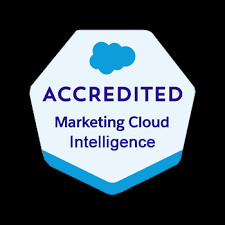Break Down Data Silos and Ensure AI Readiness in Salesforce
Whether you’re preparing for the future of AI, improving visibility across your organization, or optimizing business processes, the first and most critical challenge is organizing your data. Breaking down data silos is the foundational step to achieving this. AI Readiness in Salesforce.
The Challenge: Data Silos and Fragmentation
According to the 2024 Connectivity Benchmark Report by MuleSoft, data silos remain a significant barrier to innovation and efficiency:
- Disconnected Applications: Only 28% of applications are meaningfully connected, leading to missed opportunities for informed decision-making.
- Data Fragmentation: 81% of IT leaders cite fragmented data as a major hurdle, often requiring complex data connectors or lengthy transformation processes.
- Barriers to AI Implementation: A staggering 95% of leaders identify integration issues as the top obstacle to adopting AI, delaying ROI and hampering innovation.
At AvePoint, they specialize in solving these challenges, enabling organizations to eliminate data silos and unlock the full potential of their Salesforce environments.
Fueling AI with Centralized, Accessible Data
In today’s multi-cloud world, seamless access to clean, centralized data is critical. AI tools like Salesforce Einstein Copilot rely on unified datasets to generate accurate responses and actionable insights. Yet, data silos—caused by technical incompatibilities, lack of collaboration, or both—can lead to incomplete analytics, inaccurate reporting, and even AI missteps such as hallucinations.
What is a Data Silo?
A data silo occurs when data, whether structured or unstructured, is isolated within different systems, applications, or departments. This isolation can limit decision-making and strategy development, as illustrated in the following scenario:
Example: The Cost of Fragmented Data
A product manager tasked with reducing customer churn begins by consulting the customer success (CS) team. Their data points to “clunky and confusing UI” as the top issue, supported by survey feedback that 60% of dissatisfied customers mentioned UI problems. This leads the manager to prioritize a UI redesign.
However, the manager overlooks the support team’s data, which shows that 87% of customer complaints stem from slow runtimes and job performance issues. Without this crucial insight, the plan focuses on a less impactful problem, highlighting how incomplete data can lead to suboptimal decisions.
Overcoming Silos with AvePoint Data Connector for Salesforce Backup
Breaking down data silos requires more than collaboration—it demands technical solutions that enable seamless integration and access to comprehensive datasets. That’s why AvePoint is thrilled to introduce the Data Connector for Salesforce Backup.
With this tool, AvePoint Cloud Backup doesn’t just preserve historical, immutable datasets; it also enables automatic synchronization with platforms like Salesforce, Power BI, Tableau, and any application supporting OData connectivity.
🔔🔔 Follow us on LinkedIn 🔔🔔
Key Benefits:
- Historical Trend Analysis: Leverage historical data to identify patterns and trends.
- Automated Analytics: Streamline reporting and visualization with seamless data integration.
- Real-Time Insights: Access unified datasets across platforms for informed decision-making.
This new capability simplifies data management, empowering teams to focus on deriving insights rather than wrestling with data silos.
Looking Ahead: Storage Optimization for Salesforce
In addition to breaking down silos, data storage presents another growing challenge in the Salesforce ecosystem. Large Salesforce organizations often grapple with:
- Storage Costs: Exceeding Salesforce’s storage limits can result in additional charges.
- Performance Impacts: High record counts can slow down data exports, Apex job runtimes, SOQL queries, and even backups.
To address these issues, AvePoint is investing in Storage Optimization for Salesforce.
How It Works:
- Data Archiving: Remove outdated or redundant records from production environments while retaining archived copies for historical reference.
- Reduced Costs: Lower storage costs by cleaning up unnecessary data.
- Improved Performance: Streamline processes like data exports, queries, and backups, leading to faster, more efficient workflows.
- Better AI Responses: With cleaner datasets, Salesforce Agents and Einstein Copilot can deliver more accurate and actionable recommendations.
The Path to AI Readiness and Beyond
By breaking down silos, optimizing data storage, and leveraging tools like the AvePoint Data Connector, organizations can prepare for the AI-driven future.













